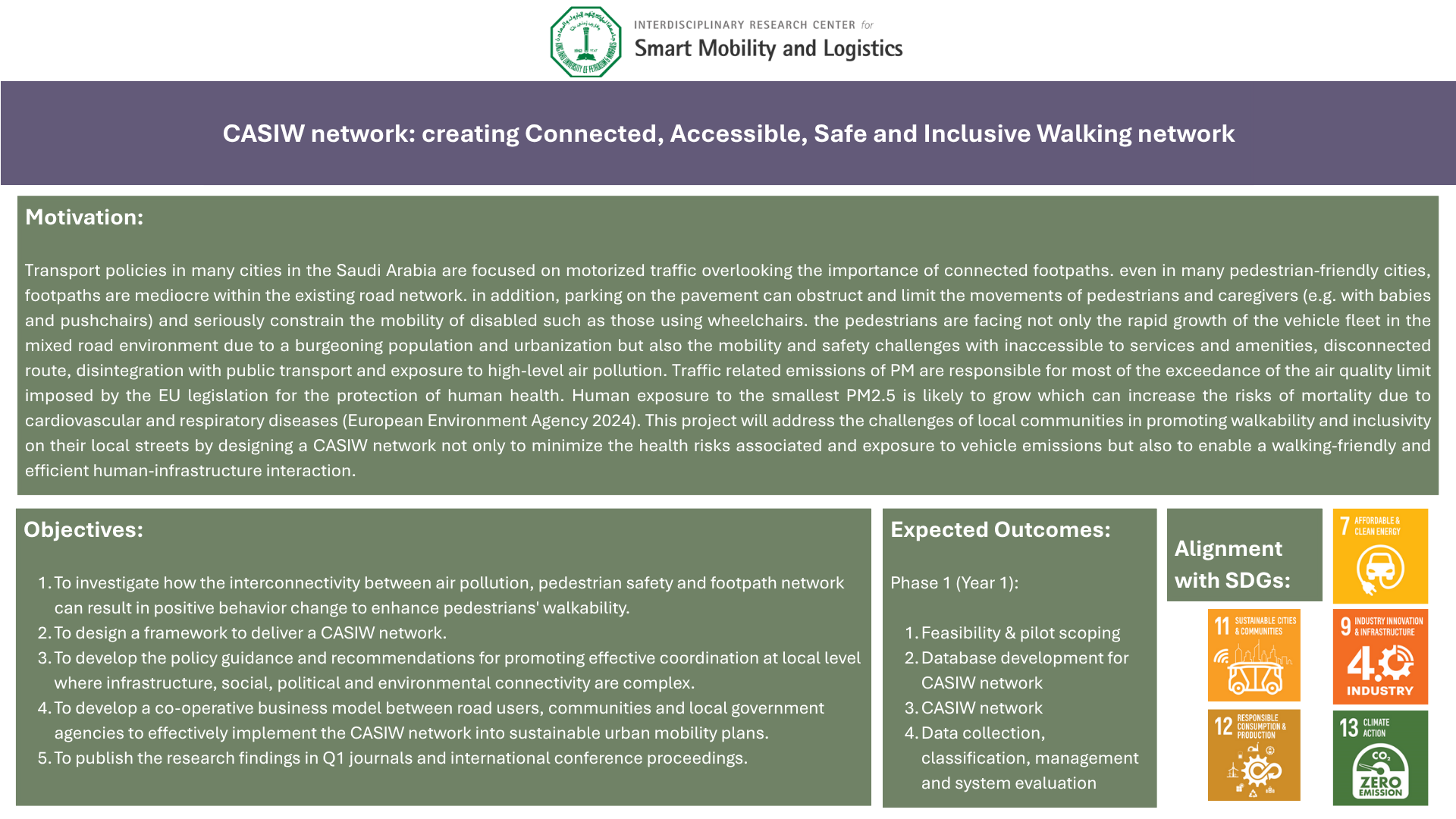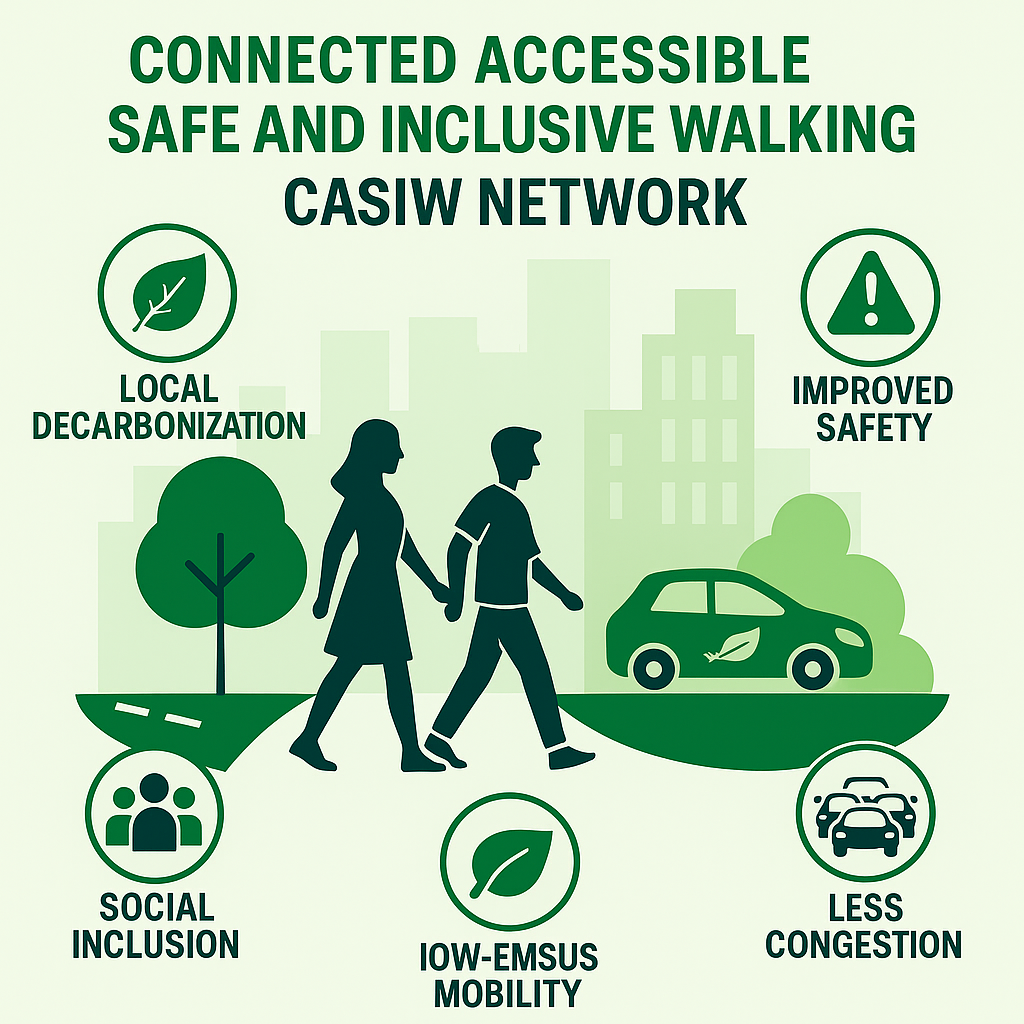CASIW network: creating Connected, Accessible, Safe and Inclusive Walking network
PI: Dr. Mohammad Ahmad Hassanain
CoI: Dr. Mohammad Sharif Zami
CoI: Dr. Mohammad Sharif Zami

